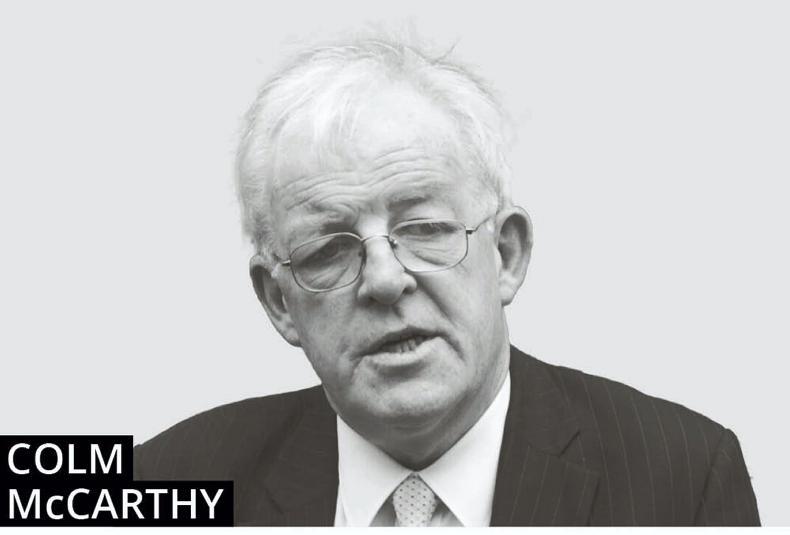In 1988, a scientist at the National Aeronautics and Space Administration (NASA), James Hansen, testified to Congress in Washington that the release of greenhouse gases, principally carbon dioxide from the combustion of oil, gas and coal, was already causing global warming.
An uncontrolled continuation of trends already evident would result in great damage to the planet, according to the NASA scientist.
The total worldwide release of carbon dioxide since 1988 exceeds the cumulative amount released throughout recorded history up to that date
Knowledge about the earth’s climate and the influence of human activity was primitive by today’s standards in 1988, but the essentials of Hansen’s analysis have stood up well.
The total worldwide release of carbon dioxide since 1988 exceeds the cumulative amount released throughout recorded history up to that date – average global temperature is already more than a full degree above pre-industrial levels and humanity is engaged in an extraordinary gamble with the future – it is already too late to halt the overall increase to 1.5°C and even the 2°C warming envisaged at the Paris climate conference may not be attainable.
Cost of inaction
Far more is known today about the consequences of inaction than was understood 32 years ago. Greta Thunberg’s father, Svante, had just left school in 1988 and Greta was born in 2003, 15 years after Hansen’s address in Washington.
The economic instrument needed to avert a climate disaster was identified even prior to Hansen’s testimony
We now know that drought, wildfires, coastal flooding and crop failures are directly attributable to the failures of policy.
The economic instrument needed to avert a climate disaster was identified even prior to Hansen’s testimony. Economists in the US and elsewhere, notably Yale University’s Bill Nordhaus, who won the 2018 Nobel prize for economics, recommended that activities creating emissions should have the cost of the externality imposed upon them and called for a universal carbon tax.
The heavy costs that now need to be borne have arisen from the delay in heeding advice that was freely available 30 years ago
Had such a tax been imposed, even at a modest initial level when Hansen spoke, the costs of adjustment would have been far lower than now appears likely. Substantial parts of the world energy system would have already been de-carbonised.
The heavy costs that now need to be borne have arisen from the delay in heeding advice that was freely available 30 years ago, a period during which the countries of the world have invested in assets which will now have to be stranded.
Coal-fired power stations, with a useful life of 40 years, are still being constructed, with government subsidies in some cases
These include transport equipment, home heating systems, fossil fuel production and delivery systems, electricity generation plants and numerous other costly assets which can no longer be run to the end of their useful lives.
Coal-fired power stations, with a useful life of 40 years, are still being constructed, with government subsidies in some cases. These units will almost certainly be retired early. This means that much of the talk about ‘green growth’ is an illusion – since so much investment has, in the absence of emission pricing, been misdirected, the stranded assets will have to be written off and replaced. The 30-year delay has a cost and the bill is due over the next few decades.
United front
The dwindling band of climate-change deniers includes, unfortunately, the president of the United States, a country which generates about double the per-capita carbon emissions of the typical European country at the same level of economic development.
As the Democratic party works through the process of selecting a candidate to oppose Trump, it is encouraging that every one of the surviving contenders has committed to a more serious climate policy.
Any country reluctant to act can point to the US, so long as the current policy in Washington remains in place
It is difficult to envisage a truly effective international agreement to face the music that does not involve the US, responsible on its own for 15% of world emissions (150 times the emissions attributable to Ireland) and capable of bending others to its will.
Any country reluctant to act can point to the US, so long as the current policy in Washington remains in place – for this reason alone, a Trump defeat is a consummation devoutly to be wished, and it appears that any of the Democratic possibilities would be an improvement.
It has long been clear that a triumvirate of China, the US and Europe will be needed to drive the necessary international agreement. These three economic superpowers account for 55% of worldwide emissions and have, collectively, the heft to secure co-operation from the rest.
China has promoted renewables and nuclear power
Europe has followed, not always coherently, the most responsible policy and China has 1.4bn reasons to intensify its efforts, which have had a stop-go quality – China has promoted renewables and nuclear power, but has also fed the boom with coal-fired generation.
The least responsible countries have included oil producers like Saudi Arabia, where auto-fuel costs around 18c per litre, as well as Russia and India, the latter another enthusiast for coal.
These countries have been lagging at international climate summits but could not resist a united front from China, the US and Europe and all three are indispensable. There is a lot riding on a Trump defeat in November.









SHARING OPTIONS